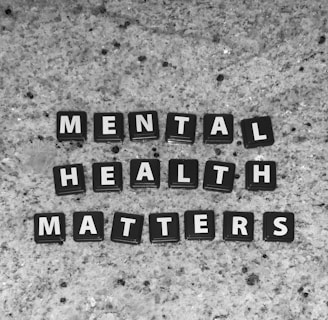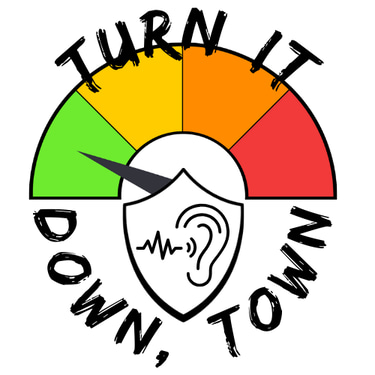The Impact of Noise on Mental Health: Why Sound Matters More Than We Think
This post explores how everyday noise impacts mental health—especially for sound-sensitive and neurodivergent individuals. Learn how chronic exposure to loud environments can affect anxiety, focus, and well-being, and discover sound-conscious strategies that support inclusion and care.
10/1/20251 min read


We live in a world that rarely quiets down. From blaring music in public spaces to the constant hum of traffic, noise has become a near-constant companion. But for many—especially those navigating hearing loss, neurodivergence, or sensory sensitivities—this isn’t just inconvenient. It’s harmful.
At Turn It Down, Town, we believe sound-conscious living isn’t a luxury—it’s a form of care. And that starts with understanding how noise affects mental health.
What the Research Shows
Chronic exposure to loud or unpredictable noise has been linked to:
Increased anxiety and irritability
Difficulty concentrating or processing information
Sleep disturbances and fatigue
Heightened stress hormone levels (like cortisol)
Exacerbation of conditions like PTSD, ADHD, and migraines
Even sounds that others consider “background” can trigger distress for sound-sensitive individuals. It’s not about volume alone—it’s about control, predictability, and respect.
Real-World Impact
We’ve heard from community members who avoid restaurants, worship services, or even family gatherings because the noise is too much. Some describe feeling trapped, overstimulated, or emotionally drained. Others simply leave—missing out on connection, joy, and belonging.
Sound-Conscious Solutions
Creating quieter, more predictable environments can support mental health for everyone. That includes:
Offering low-sensory hours or quiet zones
Reducing ambient music in shared spaces
Using soft materials to absorb sound
Training staff to recognize and respond to sensory distress
These aren’t just accommodations—they’re acts of inclusion.
A Call to Listen
Mental health and sound sensitivity are deeply intertwined. By turning down the volume, we turn up compassion. We make space for healing, connection, and dignity.
Have you experienced the mental toll of noise? We’d love to hear your story or solution. Submit your Sound Solution here and help us build a world where everyone feels heard.
Disclaimer: Turn it Down, Town is a community-led initiative. We are not medical professionals, and the content shared here reflects our personal experiences, research, and opinions. It is intended to raise awareness and spark conversation—not to provide medical advice. If you have health-related concerns, please consult a qualified professional.
Turn it Down, Town
Promoting sound-conscious public spaces for all.
Subscribe!
No noise, just news once a quarter! Get on the list!
© 2025. All rights reserved.
Site Designed by: Budde Designs
